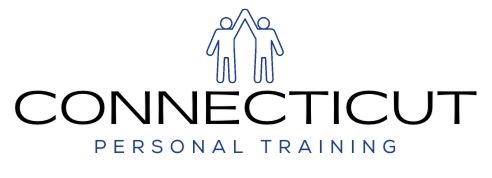We often hear “no pain, no gain,” while starting a fitness regimen. We asked our West Hartford Connecticut personal trainer what he thought of this mantra.
“One of the biggest fallacies that those, who are not in the know like to spread, is, ‘no pain no gain.’ I tend to have an issue with this saying because I am of the mindset that it should be ‘gain, with no pain,’” says our personal trainer in West Hartford Connecticut.
When training properly with a professional who knows exactly what they are doing, there should never be pain. There may be “burning” and soreness, but actual pain is never a good thing.
Our West Hartford Connecticut personal trainer goes on to say
that pain is generally the first sign of an impending injury, or it could also be a sign that a movement is not being performed correctly.
He says that it is important to be able to differentiate between pain and the muscles working.
“When working out at a proper intensity level,” continues our West Hartford Connecticut personal trainer, “it is normal to feel a burning and/or mild discomfort in the muscle belly. This is the sign that you are working at the proper level to create an anabolic response. What you should not feel is an intense sharp pain in the joints or muscle.”
He says that when clients tell him that they cannot squat because it “hurts their knees,” for instance, the first thing he looks at is form.
Are they squatting properly so that they are not putting undue stress on the joint? Are they shifting their weight and creating shear force on the joint? Do they have any old injuries, or are there any exercises that habitually cause pain?
These are the some of the questions that our personal trainer in West Hartford Connecticut must ask himself. If correcting form does not alleviate the pain, then seeking the assistance of a physical therapist or other medical professional might be suggested.
“While exercising there will be– and should be– mild discomfort in the muscles, “ states our personal trainer in West Hartford CT. “This is completely normal when muscle gain is the what a client is aiming towards.”
When performing resistance training, the goal is to create a breakdown of the muscle fibers so that, after proper rest and recovery, the muscle will have grown. “Because of this,” our West Hartford Connecticut personal trainer continues, “soreness after the workout is to be expected.”
A mild discomfort, when the worked muscle is used after a workout, is normal. Sometimes, that mild discomfort can be just a little bit more than mild.
There is something called delayed onset muscle soreness, which will cause an intense soreness in the muscles used. With delayed onset muscle soreness, it is not uncommon for the soreness to start 24-48 hours after exercise, and to last for four to five days. Again, this soreness is perfectly normal. Delayed onset muscle soreness tends to occur when someone starts a new routine after being detrained, or when increasing intensity. When pain lasts for more than a week and is accompanied by bruising and/or swelling, it may be necessary to seek out a medical professional.
“The idea of “no pain, no gain” engrains potentially dangerous thought patterns that can lead to injury,” says our personal trainer in West Hartford Connecticut. “Thinking that there needs to be pain to get substantial results will lead clients to push past a healthy level. This also applies to those trying to healthily gain weight.”
While there is a need for slight overload, overworking and over training will only result in injury. It is important to know exactly when to push and when to pull back, and as always it is recommended to seek the assistance of a certified personal trainer. Be careful with the amount of stimulants you use as well, even too much coffee can hinder results. Remember to always drink a gallon of water a day too, sometimes even more.



